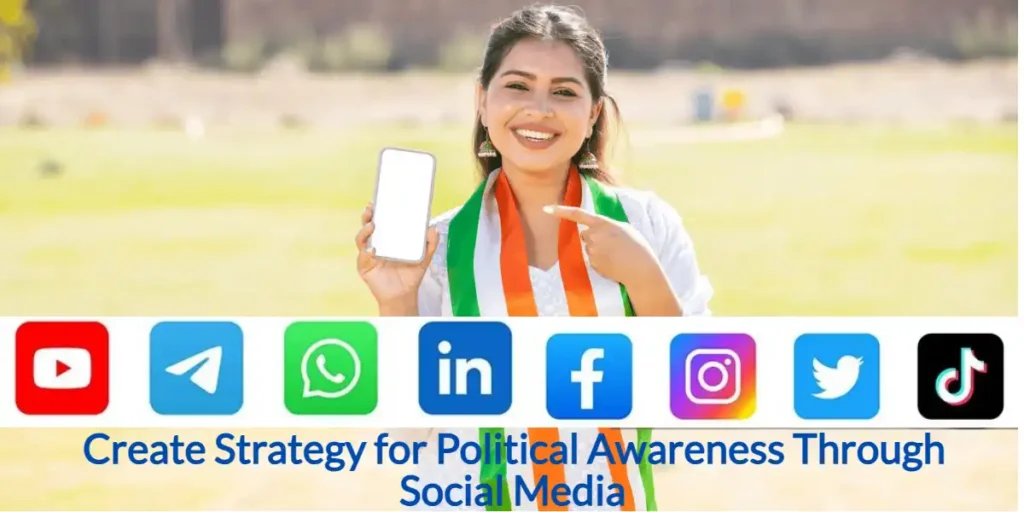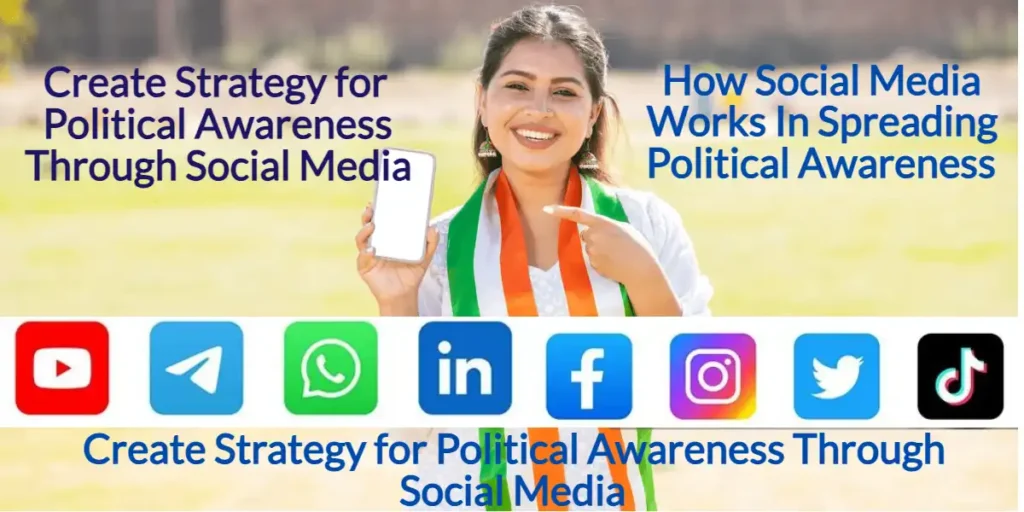Social media has become an essential mode of spreading political awareness. Several political parties are spreading political awareness through social media. I’d like you to please read this article to understand how politicians use social media to spread political awareness.

Social media has become a huge part of our lives, it has changed the way we communicate and share information, in recent years, social media platforms like X(formerly Twitter), Instagram, and Facebook have become key battlegrounds for political campaigns. Social media influencers of different categories spread political awareness through social media by posting content regarding elections in various media forms.
Politicians and workers of political parties are active more than ever. There are countless advantages and drawbacks to using social media as a tool to get information related to elections. Nonetheless, we cannot ignore its impact on the outcome of the polls. Today, We will discuss how social media has influenced the political landscape and look at how politicians connect with voters, share their messages, and engage in political discourse
How Social Media Works In Spreading Political Awareness
Social media was used to be the platform where you could share your thoughts and connect with like-minded people. But, today, it has become a mode for spreading political awareness. Below are the top methods in which social media can be used to spread political awareness:
Getting People Involved
Social media has provided a platform for people like us to share our opinions, conduct open discussions, and express our genuine support for the party we like. People and politicians can interact with each other through comments and sometimes chats.
Social media platforms are facilitating a personal connection between politicians and voters. It is like everyone is a part of a big political community! This type of accessibility can actually shape election outcomes.
Sharing The Scoop
When it comes to election campaigns, social media has revolutionized how information gets around. News and updates related to elections spread like wildfire on social media platforms. This quick spread of information keeps the voters in a loop.
Candidates can directly share their policies on social media, talk about any real-time events and share campaign events. But here’s the thing: with all this information circulating, we will have to be careful. Many times fake news and misinformation can spread like crazy too. So, we will have to be careful, and trust information only from trusted sources.

Ads That Hit The Bullseye
Social media platforms have very advanced advertising technology, that political campaigns can use to their advantage. Tools that can target specific groups of people with specific ideologies, interests, and demographics.
You can imagine how useful this can be, as people from different backgrounds will see advertisements that influence them the most. Parties can tailor their message to reach uncertain voters and make a big difference. This technique will be like they are directly speaking to us. However, some experts criticize targeted advertising as it might be manipulative.
Influence On Political Discourse
Social media has transformed the nature of political conversation during elections. It has changed the way we talk about politics during elections. We can express our opinions, debate with others, and share our perspectives.
It is a place where people can have their voices heard! But there is a problem in getting political awareness through social media, that is, sometimes we end up in little bubbles where we only see stuff that agrees with what we think already (Thanks to targeted advertising).
It is important to look for different viewpoints and opinions and have a respectful conversation with people who might see things differently. That way, we can have a more inclusive and empathetic political conversation. Coming out of the echo chamber might be challenging but it can expand and diversify your political knowledge.
Criticism and Challenges
The following are the challenges regarding political awareness through social media:
- Spread of misinformation
- Echo chambers and filter bubbles
- Lack of fact-checking
- Privacy concerns
- Online harassment and polarization
-
Political Voice Campaign
Conclusion
To wrap it up, political awareness through social media has its pros and cons. It allows us to stay informed, conduct discussions, and share our opinions with a wide audience. It is a powerful tool that can bring people together and amplify their voices.
However, there are some challenges that we need to be aware of. But fear not! You can bypass all these challenges by being critical, fact-checking the information, and respectfully participating in debates with people of different opinions. We can navigate these challenges and make the most of social media’s potential for political awareness.
Faq For (Political Awareness Through Social Media)
Q. How is social media good for democracy?
Ans. Social media is a very important tool for pro-democratic activists and opposition as they cannot rely on media only. The reason is media can be controlled by govt. And can be expensive sometimes.
Q. How is social media beneficial to society?
Ans. It is beneficial to society as it provides connectivity. It can link numerous users at a time. Information can be shared globally.
Q. How does social media influence political views?
Ans. Social media is persuasive, it can alter people’s political views with the help of tools like targeted advertisement.
Q. How does media bias affect politics?
Ans. As media is the primary source of information for a majority of people, biased media can influence people’s political views.
Some other research articles related to our social media and political awareness strategy that you might like.








